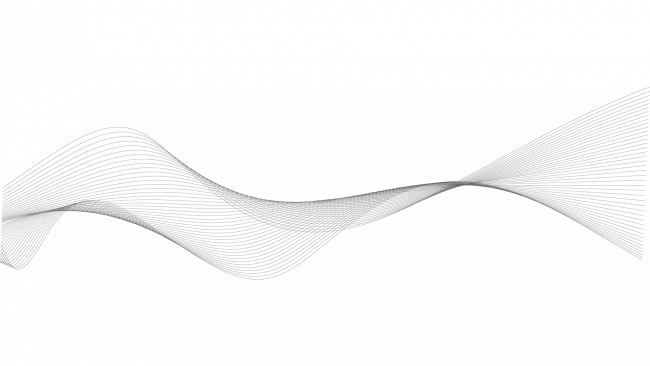Understanding the 2025 Relativity aiR Updates
The legal industry’s approach to privilege review is evolving rapidly, driven by sophisticated AI-powered technology. In 2025, Relativity—already a market leader in e-discovery—has made significant enhancements to its Relativity aiR platform. These Relativity aiR 2025 updates for privilege review introduce refined machine learning models, workflow advancements, and an integrated user interface that streamline identification, logging, and quality control of privileged content. As law firms and litigation support teams assess the potential for these updates to impact privilege review, a detailed understanding of the practical implications is critical.
Enhancements to Privilege Detection Accuracy
A central challenge for any privilege review protocol is discerning attorney-client and attorney work product content across massive data sets. In the 2025 release, Relativity aiR’s native AI models have benefitted from purpose-built training on an expansive, anonymized corpus of privilege determinations spanning high-stakes litigation, regulatory response, and internal investigations. Leveraging advanced language models fine-tuned to legal communications, the platform now identifies nuanced privilege signals—including indirect references, “silent” privilege markers, and multi-layered threads more effectively than previous iterations.
The result is a tangible reduction in both false positives (over-inclusiveness, dragging in non-privileged commercial content) and false negatives (missed privileged items). For sophisticated privilege review teams, this level of precision directly impacts review speed and confidence, reducing downstream exposure and ensuring privilege logs are robust and defensible.
Integration of Adaptive Review Workflows
Relativity aiR 2025 updates privilege review workflows through seamless integration of AI suggestions directly within the reviewer experience. This adaptive engine now surfaces “just-in-time” privilege predictions at the moment of coding, accompanied by explanations and attributions that make AI decisions more transparent.
For example, if aiR predicts privilege for a document but human reviewers disagree, detailed rationales and confidence scores allow attorneys to audit the AI’s reasoning. Where privilege determination is ambiguous, the platform flags these documents for secondary review—allowing team leads to direct attention toward those most likely to present privilege waiver risks. This targeted review dramatically reduces the volume of documents requiring second-level review and empowers reviewers to tackle edge cases efficiently.
Workflow customization has also been deepened. Project managers can tune privilege models based on known case strategy or judge-specific privilege philosophies, ensuring that technology augments, rather than replaces, human expertise. This flexibility is especially valuable for multinational or cross-practice matters where privilege standards can differ.
Automated Privilege Logging and QC
Privilege logs have historically represented a significant time and cost burden. The Relativity aiR 2025 updates privilege review capabilities with unparalleled automation in logging. Once a privilege determination is made—by either reviewer or AI—metadata, communication participants, privilege basis, and document type are extracted and auto-populated into custom privilege log formats. These logs are now aligned to common federal and state requirements by default, but remain entirely customizable for engagement-specific needs.
Built-in validation routines cross-check privilege logs against coding decisions and flag potential inconsistencies in real time. This ensures that logs are not only accurate on their face but that downstream privilege challenges are less likely to succeed. For projects where teams face compressed timelines for productions, this automation can shave days, if not weeks, from the privilege logging process without sacrificing quality.
Defensibility in a Changing Regulatory Landscape
Concerns about the “black box” nature of AI have often hampered broader adoption in high-stakes matters, especially where judges are eager to scrutinize privilege determinations. The 2025 aiR platform addresses these hesitations through granular audit logs, version tracking of privilege models, and full export of each decision’s provenance.
Should a privilege challenge arise, responding attorneys can provide detailed reports showing when and why certain privilege calls were made—whether by human reviewers or augmented by aiR’s recommendations. This defensibility, paired with empirical accuracy metrics reported by the system itself, provides litigation teams with an evidentiary basis for their privilege process.
Moreover, as regulatory frameworks increasingly require legal technology to maintain explainability and bias testing, Relativity aiR’s 2025 compliance features support both internal quality control and external legal or regulatory review. This is particularly relevant in sectors like antitrust, financial services, and international arbitration, where privilege waivers carry significant risk.
Looking Ahead: Strategic Implications for Legal Teams
The Relativity aiR 2025 updates privilege review procedures in ways that will resonate for years to come. By fusing best-in-class AI accuracy with customizable, transparent workflows and automated logging, legal teams can redirect high-value attorney time from rote coding tasks to strategic privilege calls and oversight. The impact on project costs, cycle times, and quality metrics is already evident in early adopter projects reported in 2025.
For law firms, legal departments, and managed review providers seeking to stay competitive and defensible, embracing these Relativity aiR 2025 updates for privilege review is now a best practice. Maximizing the value of these tools will require close collaboration between legal technologists, project managers, and subject matter experts—reflecting a future where privilege review is not just a legal task, but a data-driven operation. As privilege review standards continue to evolve, Relativity aiR’s latest innovations offer both the scalability and accountability the modern legal industry demands.

Based in Greensboro, North Carolina, Rob Dean with UnitedLex helps law firms and in-house legal departments solve data challenges in litigation and regulatory actions. With extensive experience in the legal tech industry, Mr. Dean is committed to delivering innovative solutions to enhance efficiency and drive success. He is a member of the Electronic Discovery Institute.
